This traditional Czech recipe dates back to the 1920s when Czechoslovakia was established, and Tomas Masaryk became our country's first president. This particular Christmas cookie was his personal favorite, and it was named after him: Masaryk's cookies.
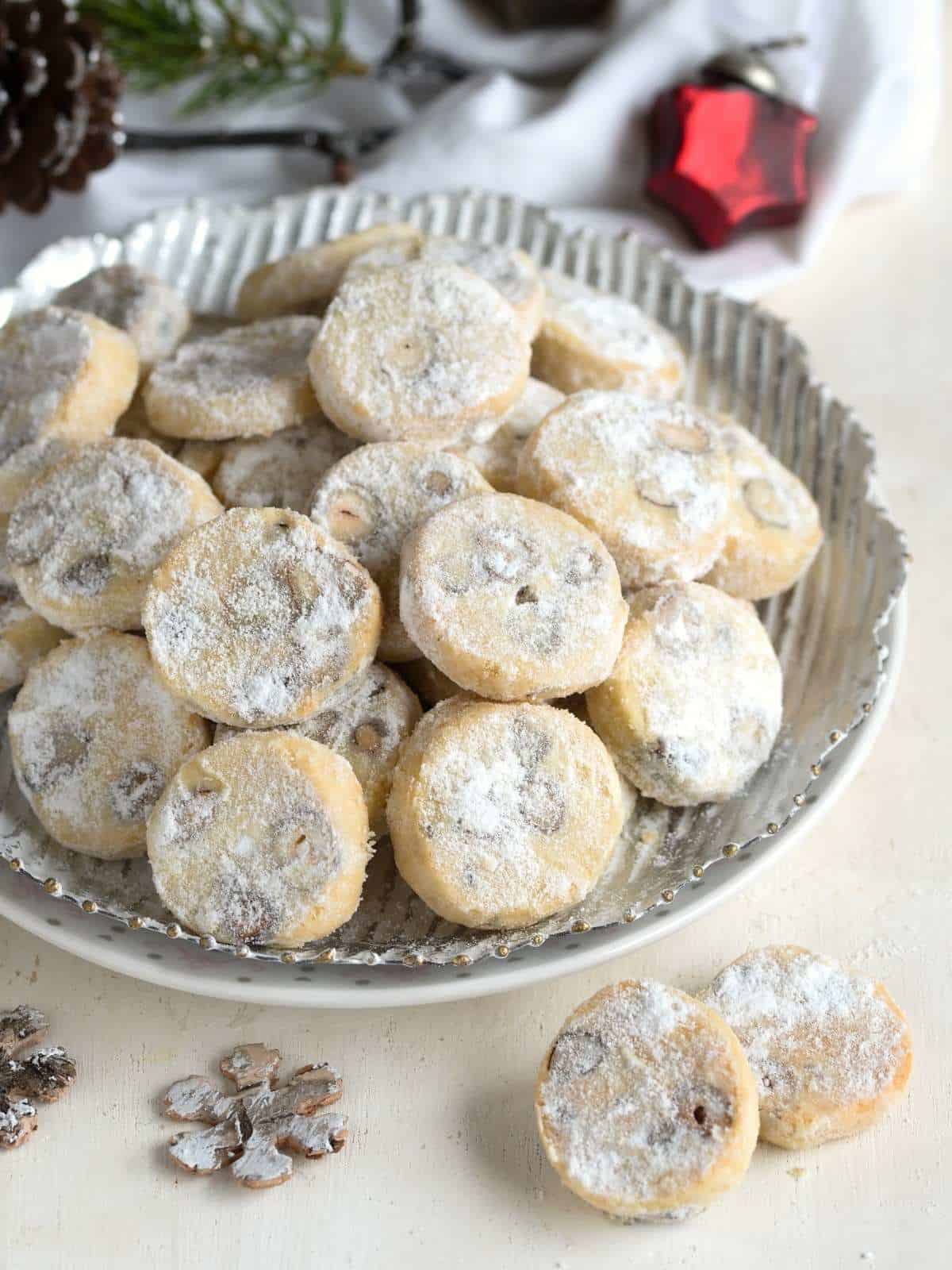
I made Masaryk's cookies for the first time about five years ago and was pleasantly surprised by the ease of the recipe and the delicious flavor.
No cookie cutters or special molds are needed. You roll the dough into elongated cylinders, let it stiffen in the fridge, and then cut it into rounds, like a sausage.
After baking, just coat the cookies in powdered sugar and let them rest for about a week to soften.
The Czech name for these cookies is: "Masarykovo cukroví" or "Masarykovy sušenky", which means Masaryk Christmas cookies and Masaryk bisquits.
MY TIP: Try pracny, another delicious Czech Christmas cookie!
➜ Ingredients you need
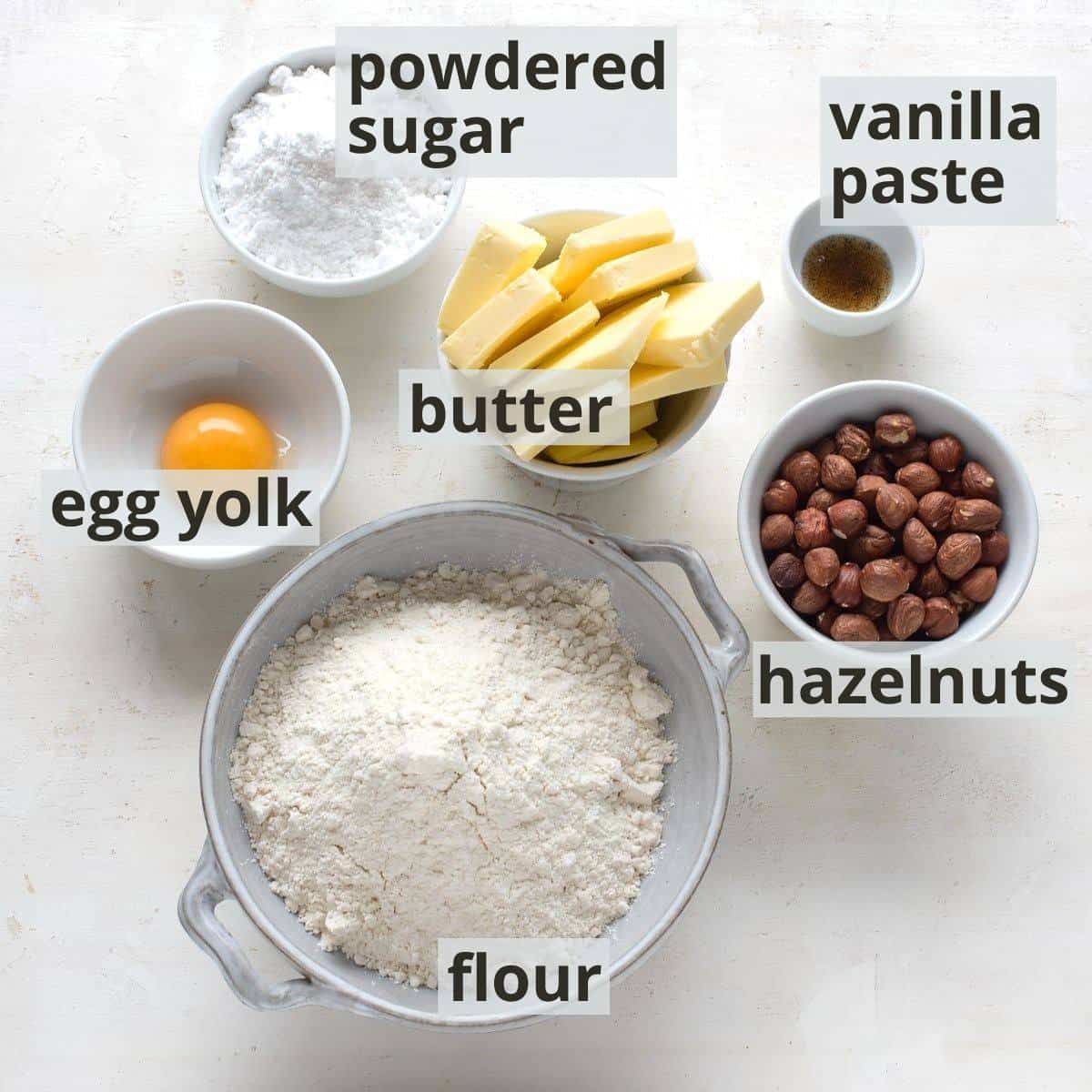
To make Czech Masaryk Christmas cookies, you will need:
- All-purpose flour; or plain flour if you are based in the UK
- Unsalted butter; Czechs use butter with a fat percentage of 82%. The butter should be cold, taken out of the fridge about half an hour beforehand.
- Powdered sugar; to sweeten the cookie dough plus to coat baked cookies in
- Vanilla paste; or vanilla essence. If you can get a sachet of vanilla sugar at your grocery store, use that. Vanilla sugar is fine granulated sugar mixed with real vanilla flavoring. A popular brand is Dr. Oetker, whose products can be found, for example, on Amazon.com
- Whole raw hazelnuts; unpeeled, with the skin on. Hazelnuts play an important role in this recipe. They are placed whole in the dough and become crunchy when bitten into the baked cookies.
- Egg yolk; helps keep the dough together
✅ You’ll find the exact amount of ingredients below in the recipe card, which you can also print out.
➜ Instructions with photos
STEP 1: First of all, put the whole hazelnuts in a mug and pour lukewarm water over them. Let them stand for about an hour. The nuts will soften slightly in the water.
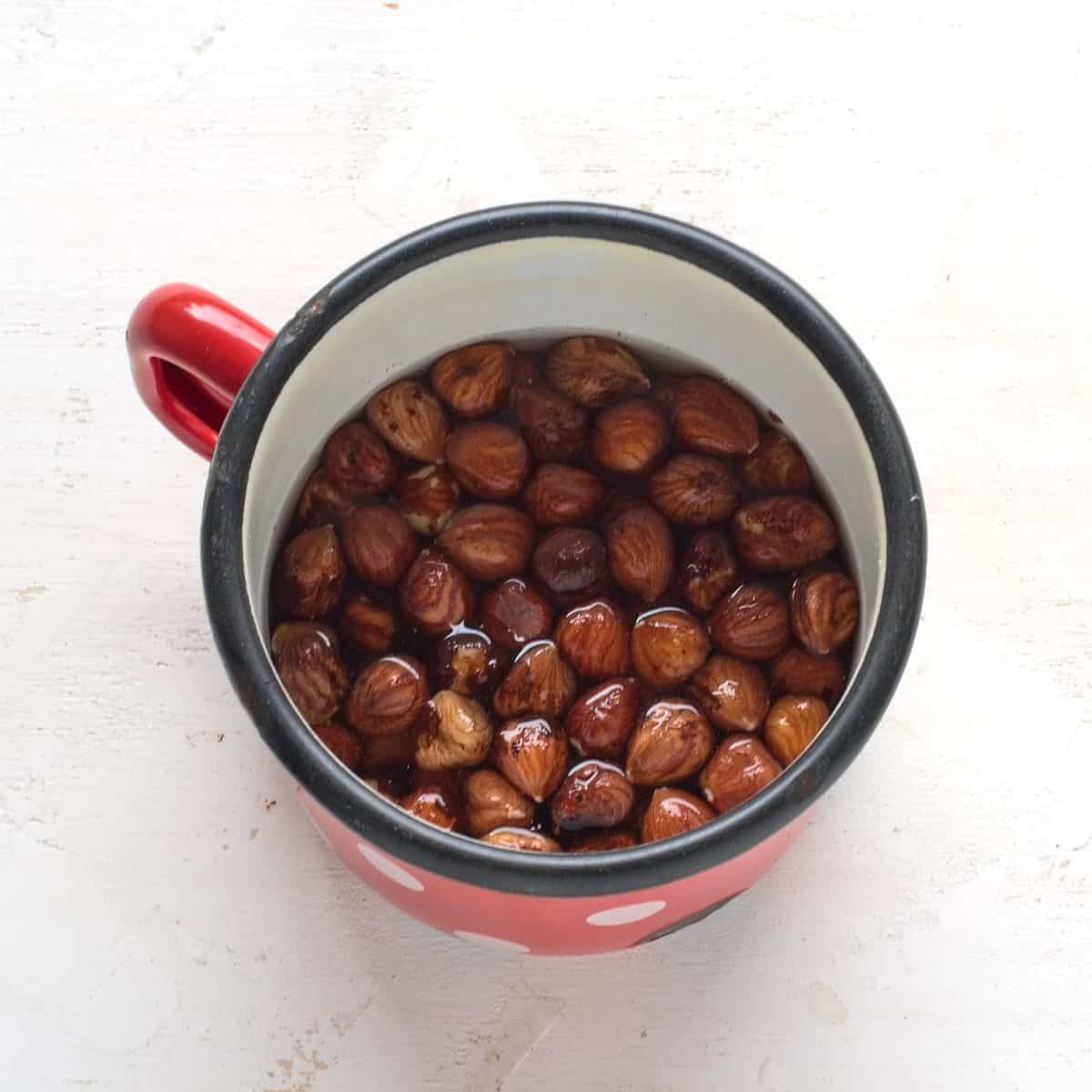
STEP 2: In a large mixing bowl, add the flour, sugar, vanilla paste, egg yolk, and butter, chopped into smaller pieces.
Drain the nuts and dry them gently with a kitchen towel. Add them to the bowl with the other ingredients.
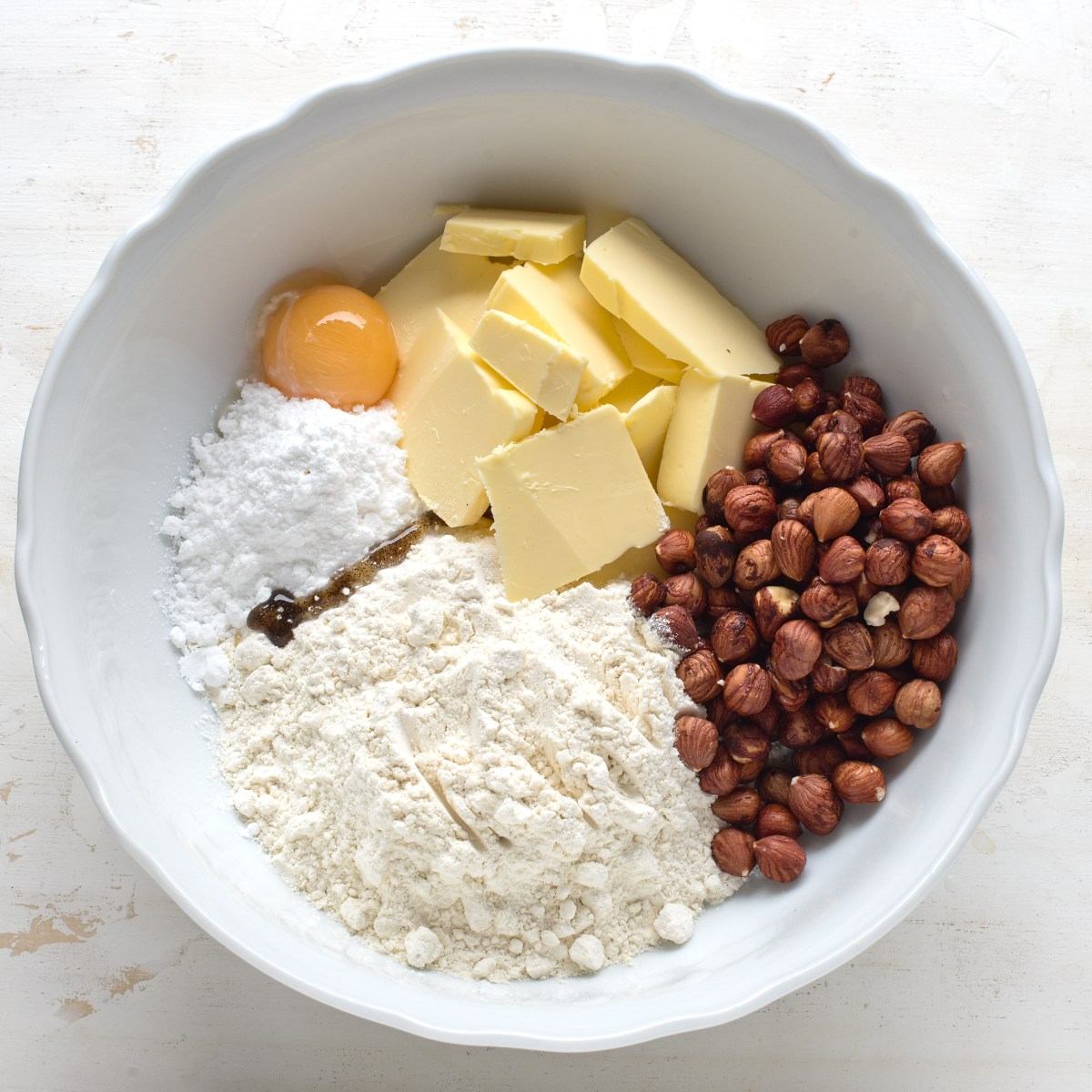
STEP 3: Make the cookie dough. First, mix the wet ingredients, i.e. egg yolk and vanilla paste, with the flour using a fork. Then, using your fingers, work the butter into the other ingredients until lumps form.
Dump the mass onto a work surface and use your hands to finish it into a smooth, slightly sticky dough. Be patient, and don't work hastily. The dough may seem too powdery at first, but as you go on, the butter will soften, and everything will come together beautifully.
Don't knead the dough too long! Once you get a smooth dough, stop working it.
STEP 4: Divide the dough in half and roll it into elongated cylinders nearly two inches (5 cm) in diameter. Cover them in plastic wrap and let them firm up in the fridge for about an hour.
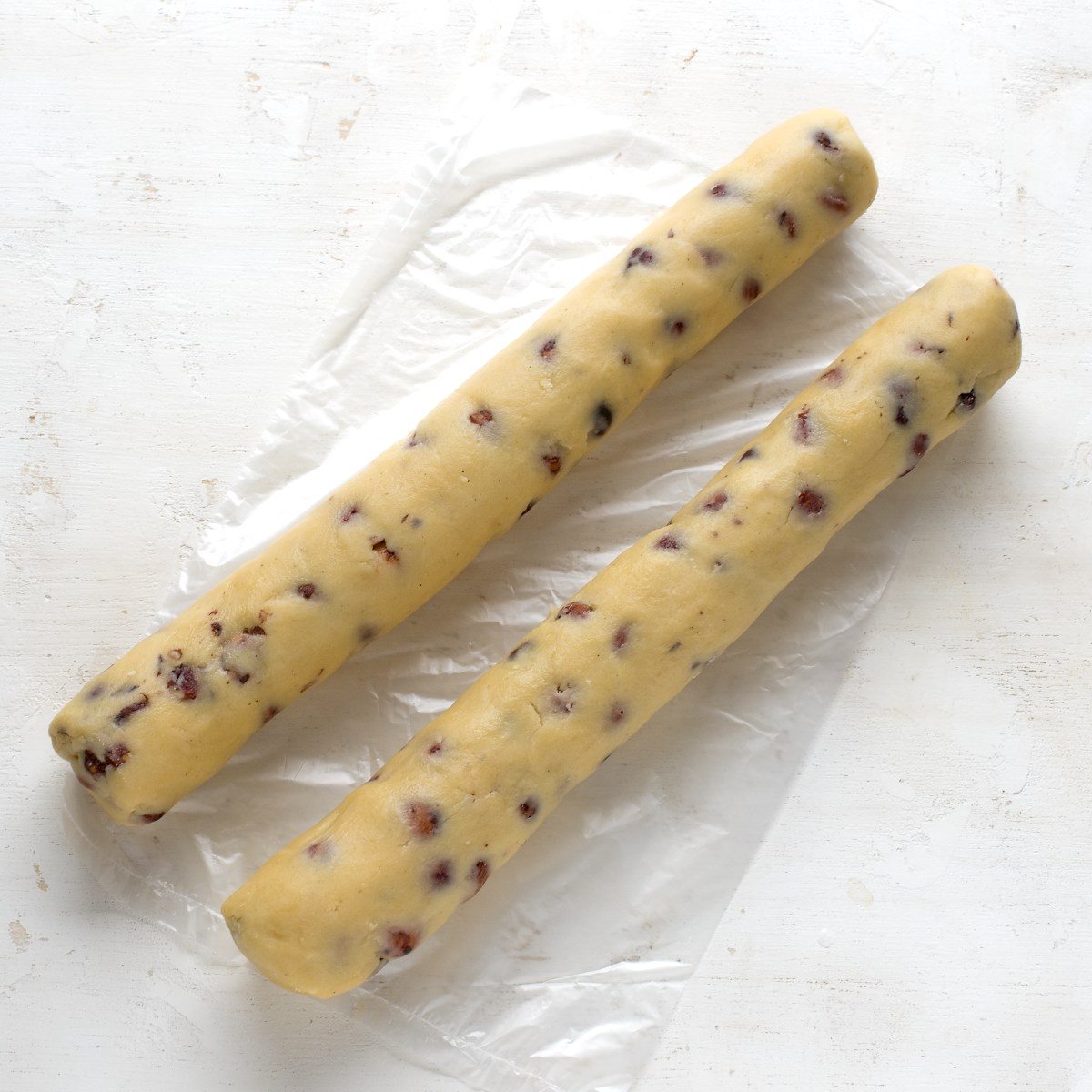
STEP 5: Using a sharp knife, cut the cooled cylinders of dough into rounds about 1/4 inch (0.6 cm) thick.
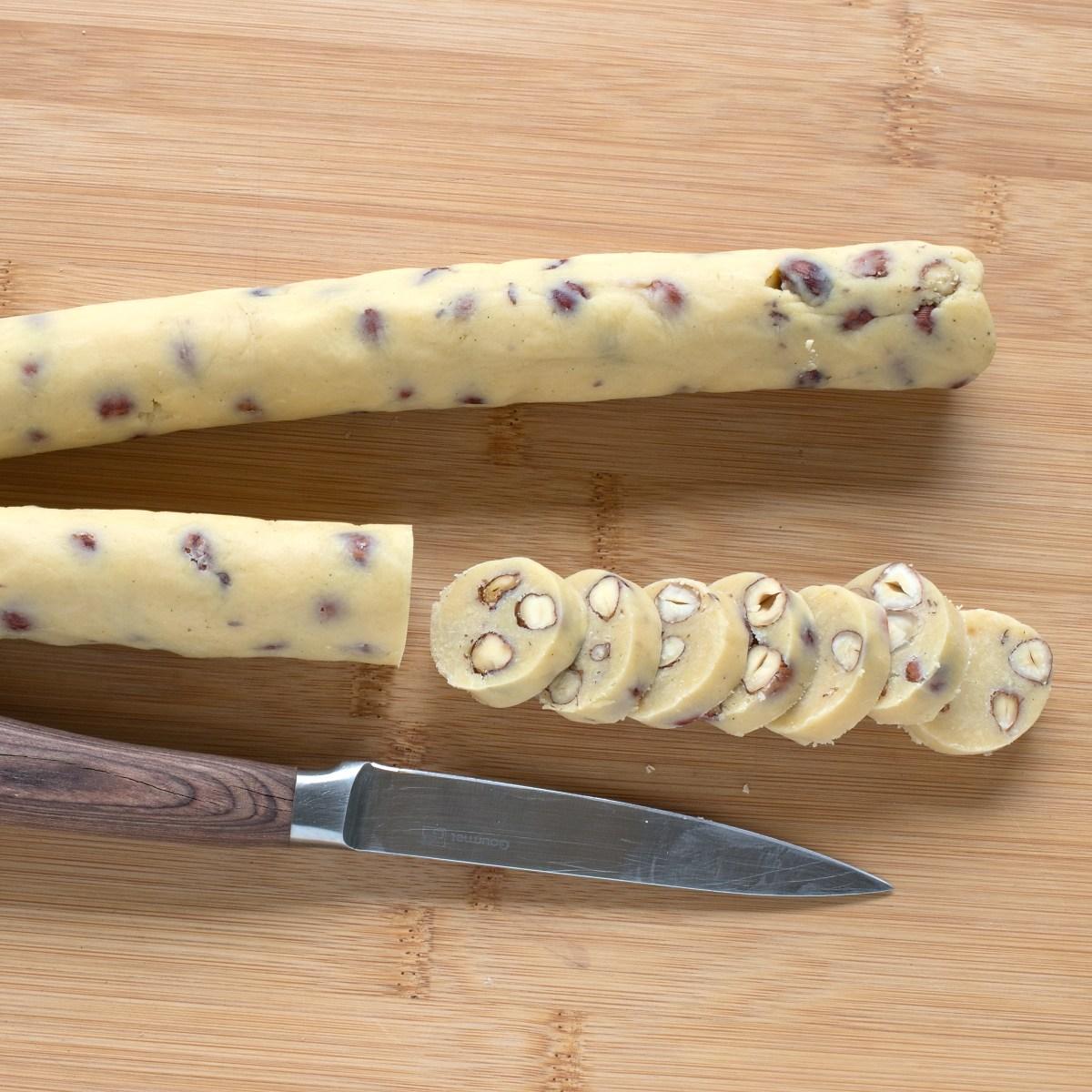
STEP 6: Line a baking sheet with parchment paper. I always grease the baking sheet a little to ensure the paper sticks well. Place the cookies on the lined baking sheet and bake in a preheated oven at 340 °F (170 °C) for 13 minutes.
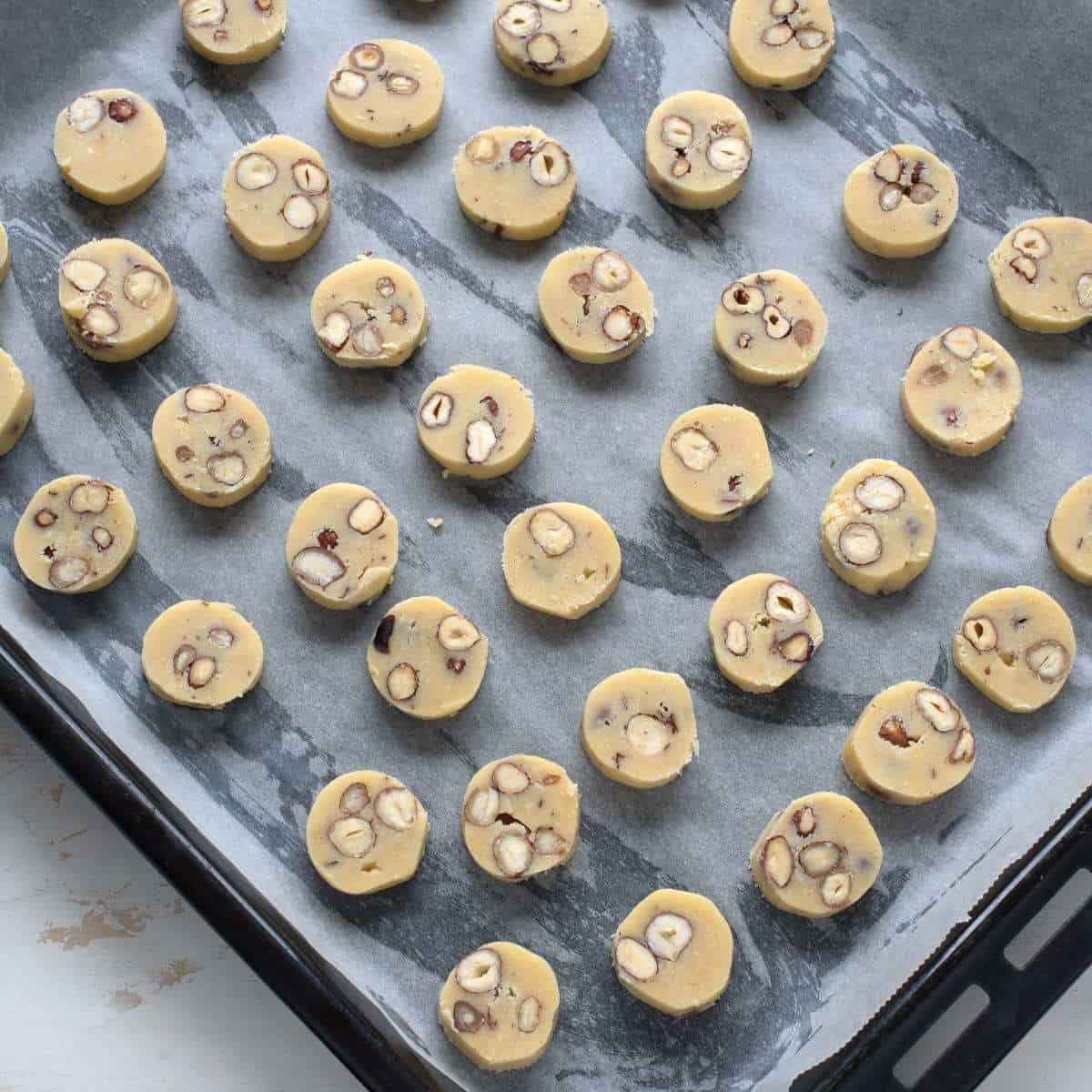
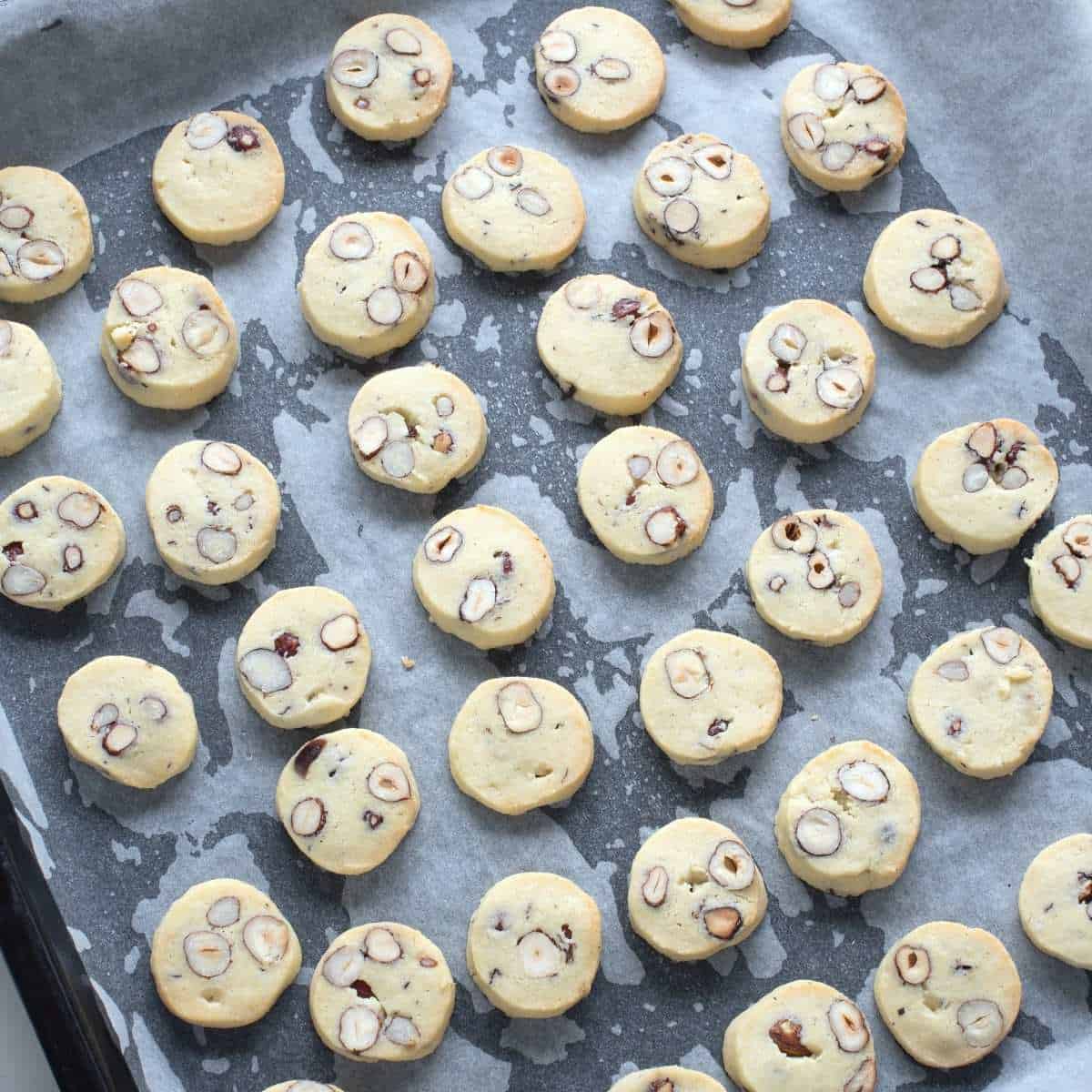
STEP 7: Let the cookies cool for about 5 minutes. While still warm, roll them in powdered sugar, scented with the vanilla pod (optional).
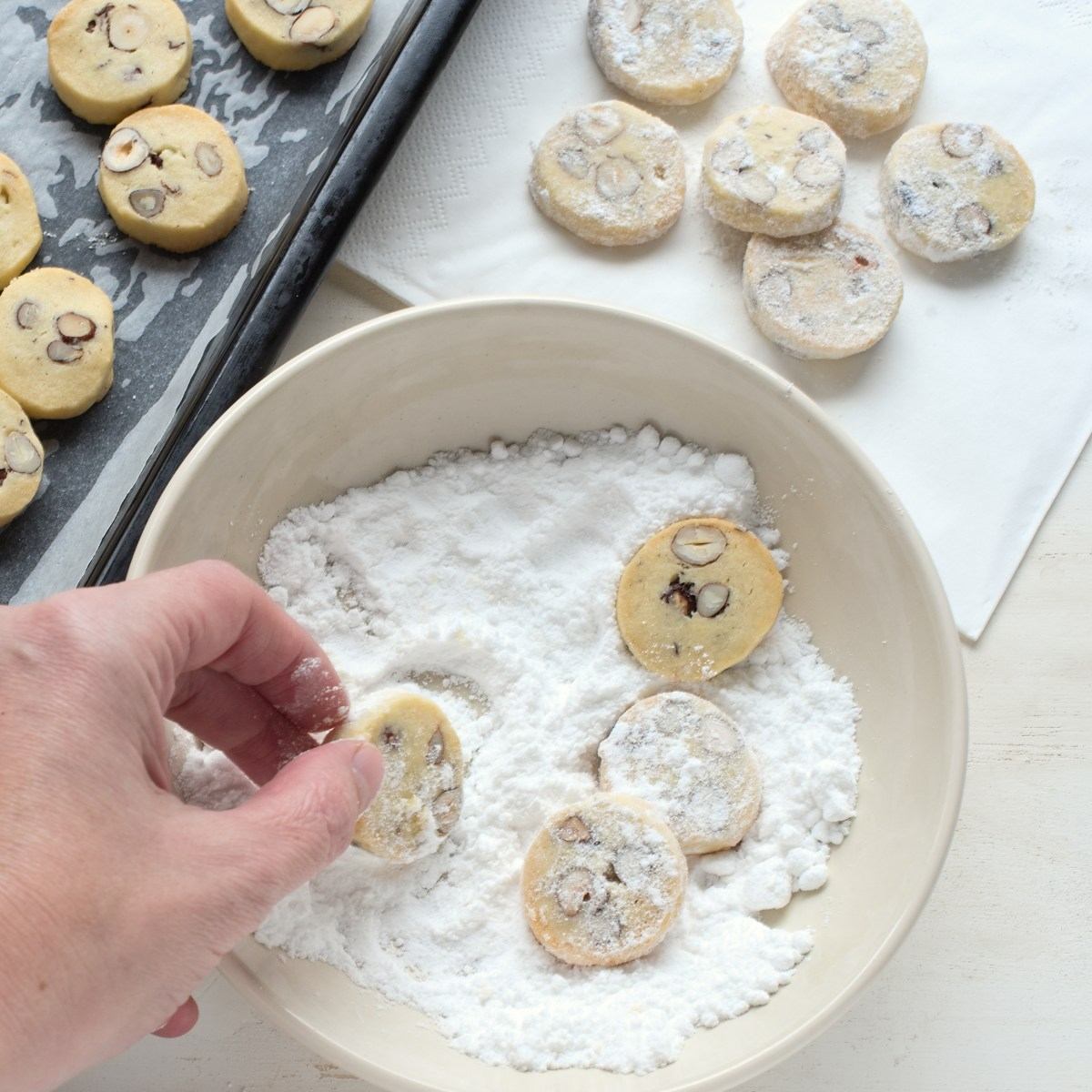
➜ Storage
Immediately after baking, Masaryk's cookies are fragile and crispy; then they firm up the next day. If you leave the cookies to rest for about a week to ten days, they will soften perfectly.
For storage, prepare a paper box lined with paper napkins. Place the cookies in the box. Cover with a lid and store in a cool, dry place.
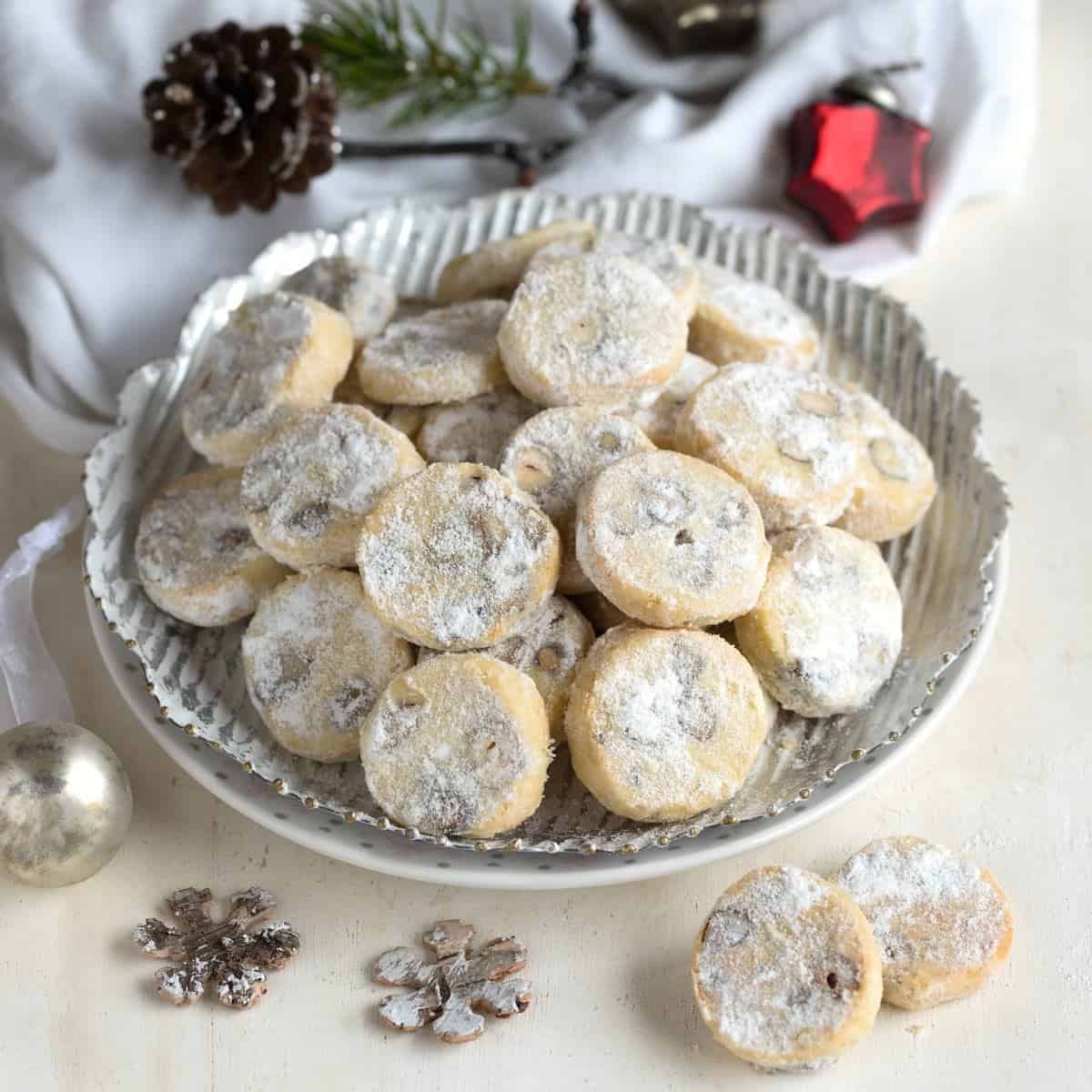
➜ Useful tips
- Although the cookies will soften after a week or two, the hazelnuts inside will remain crunchy.
- Do not use plastic or metal boxes for storage. The cookies would not get the moisture they need to soften.
- Masaryk's cookies freeze without any problems. Proceed by placing the sweets in an airtight container and storing them in the freezer, where they will keep for at least half a year.
➜ Who was Thomas Garrigue Masaryk?
Tomáš Garrigue Masaryk (also known as TGM, or President Liberator by his contemporaries) was a Czech politician who managed to convince the Entente in WWI to split up Austria-Hungary and create separate countries instead.
Tomáš Masaryk became the President of the First Czechoslovak Republic, the only persisting interwar democratic state in Central Europe, and held the office for most of its existence.
He resigned in 1935, shortly before WWII, due to his old age.
Today, he is remembered with love as one of the most important Czechs in history and the first president of the Czechoslovak Republic.
More Czech Christmas cookies:
- Linecke cukrovi – Czech Linzer cookies
- Vanilla crescents – vanilkove rohlicky
- Beehive cookies – vosi hnizda
Or browse the category with all Czech Christmas cookies
Tried this recipe?
Leave a review down in the comments! ⭐⭐⭐⭐⭐
Follow me on Facebook and Pinterest. Subscribe to my newsletter. Send me any question about Czech cuisine to my e-mail. I love hearing your feedback!
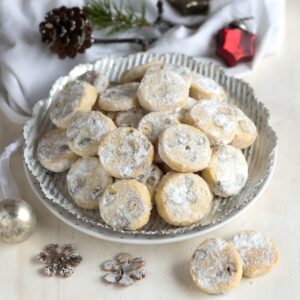
Masarykovo Cukrovi
Ingredients
- 1 and ⅓ cups all-purpose flour (170 g)
- ⅓ cup powdered sugar (40 g)
- 1 stick unsalted butter (112 g) cold
- ¾ cup hazelnuts (100 g) raw with skins on
- 1 egg yolk
- ½ teaspoon vanilla paste
- ½ cup powdered sugar to coat cookies
Instructions
- First of all, put the whole hazelnuts in a mug and pour lukewarm water over them. Let them stand for about an hour. The nuts will soften slightly in the water.
- In a large mixing bowl, add the flour, sugar, vanilla paste, egg yolk, and butter, chopped into smaller pieces.
- Drain the nuts and dry them gently with a kitchen towel. Add them to the bowl with the other ingredients.
- Make the cookie dough. First, mix the wet ingredients, i.e. egg yolk and vanilla paste, with the flour using a fork. Then, using your fingers, work the butter into the other ingredients until lumps form.
- Dump the mass onto a work surface and use your hands to finish it into a smooth, slightly sticky dough. Be patient, and don't work hastily. The dough may seem too powdery at first, but as you go on, the butter will soften, and everything will come together beautifully.
- Note: Don't knead the dough too long! Once you get a smooth dough, stop working it.
- Divide the dough in half and roll it into elongated cylinders nearly two inches (5 cm) in diameter. Cover them in plastic wrap and let them firm up in the fridge for about an hour.
- Using a sharp knife, cut the cooled cylinders of dough into rounds about ¼ inch (0.6 cm) thick.
- Line a baking sheet with parchment paper. I always grease the baking sheet a little to ensure the paper sticks well. Place the cookies on the lined baking sheet and bake in a preheated oven at 340 °F (170 °C) for 13 minutes.
- Let the cookies cool for about 5 minutes. While still warm, roll them in powdered sugar, scented with the vanilla pod (optional).
Notes
- Makes about 40 cookies, depending on their size.
- Immediately after baking, Masaryk's cookies are fragile and crispy; then they firm up the next day. If you leave the cookies to rest for about a week to ten days, they will soften perfectly.
- STORAGE: Prepare a paper box lined with paper napkins. Place the cookies in the box. Cover with a lid and store in a cool, dry place.
- Although the cookies will soften after a week or two, the hazelnuts inside will remain crunchy.
DISCLAIMER: Because I come from Central Europe, my recipes are based on metric units such as grams or milliliters. Check out how I convert metric units to the U.S. system:
Conversion chart

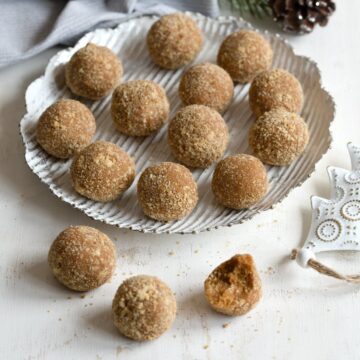
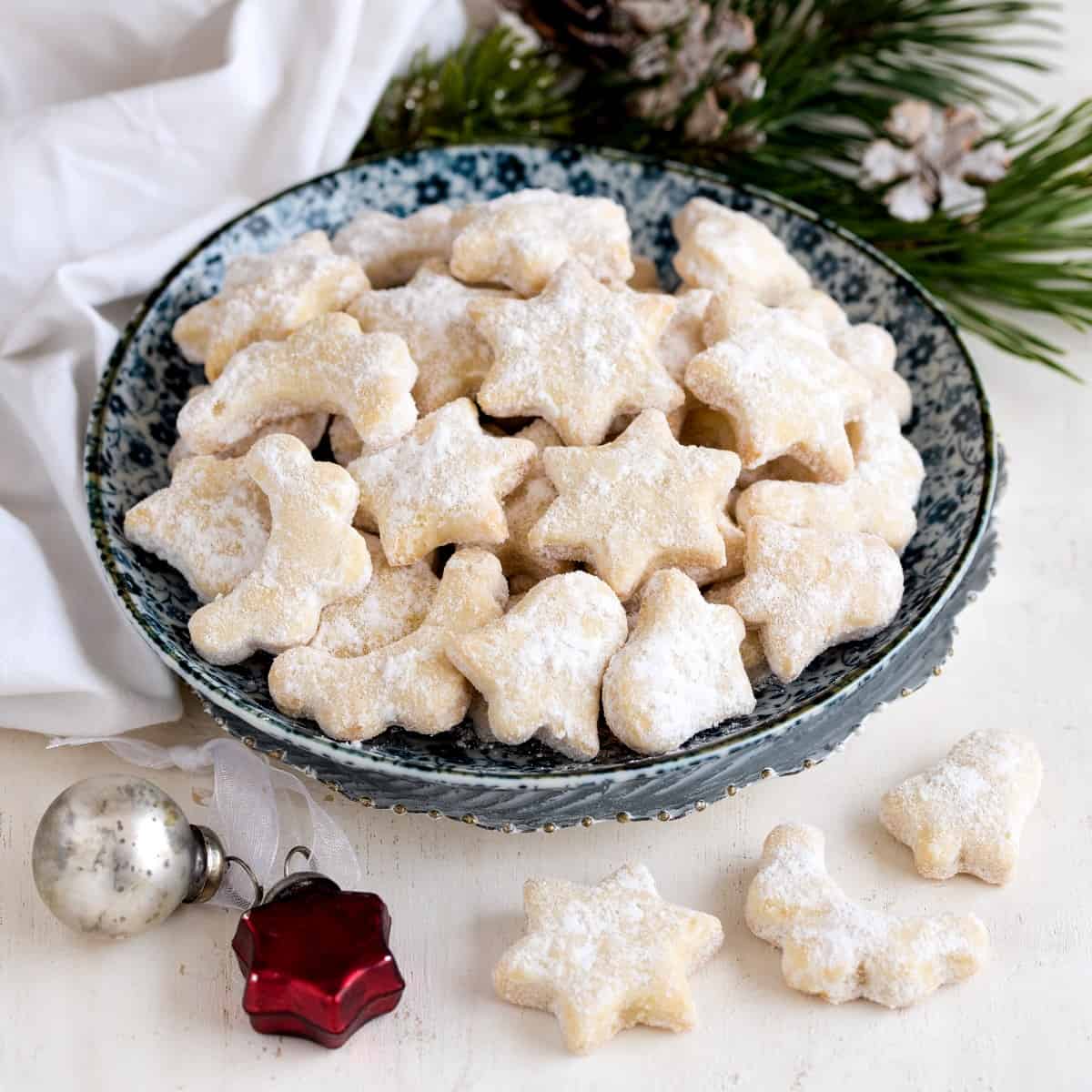
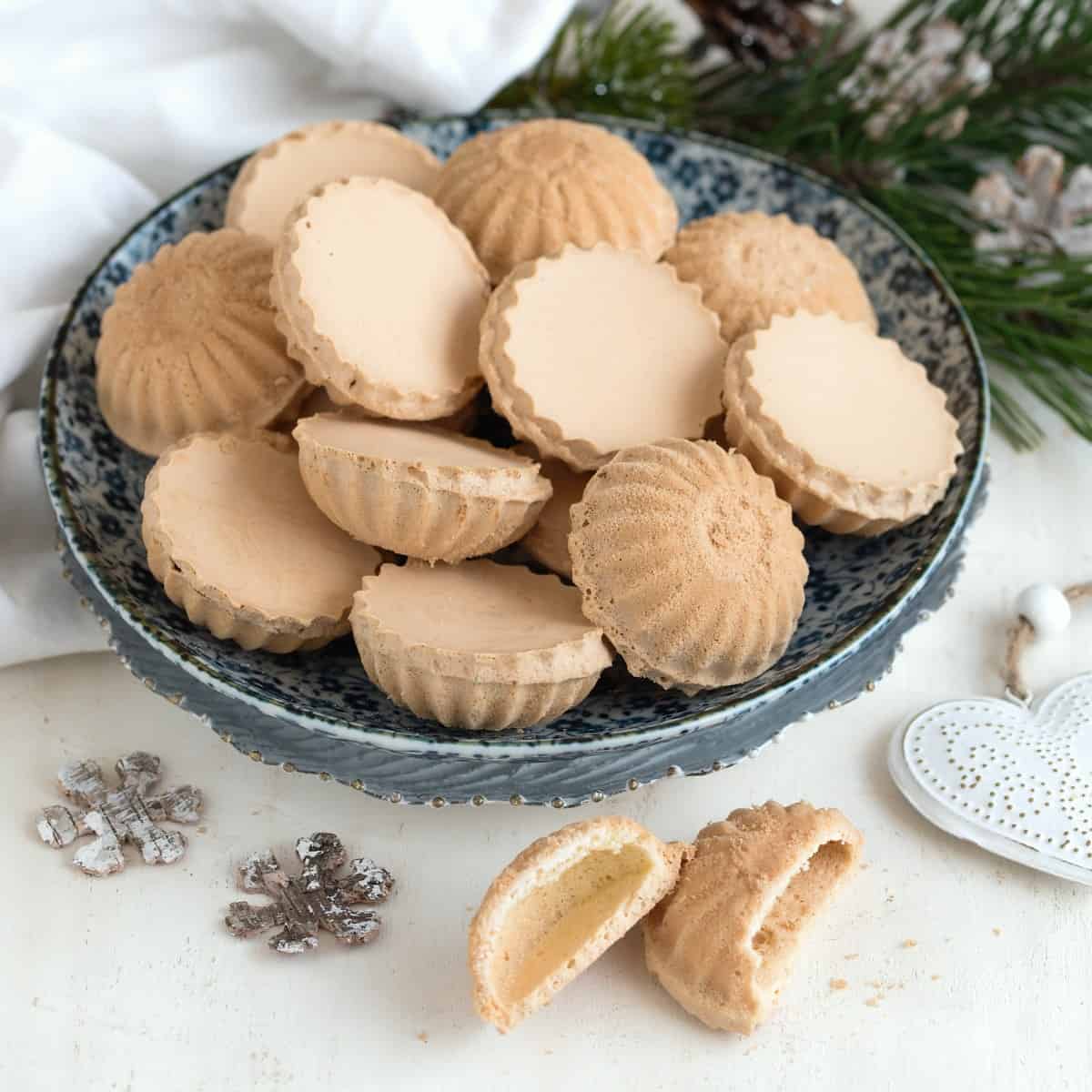
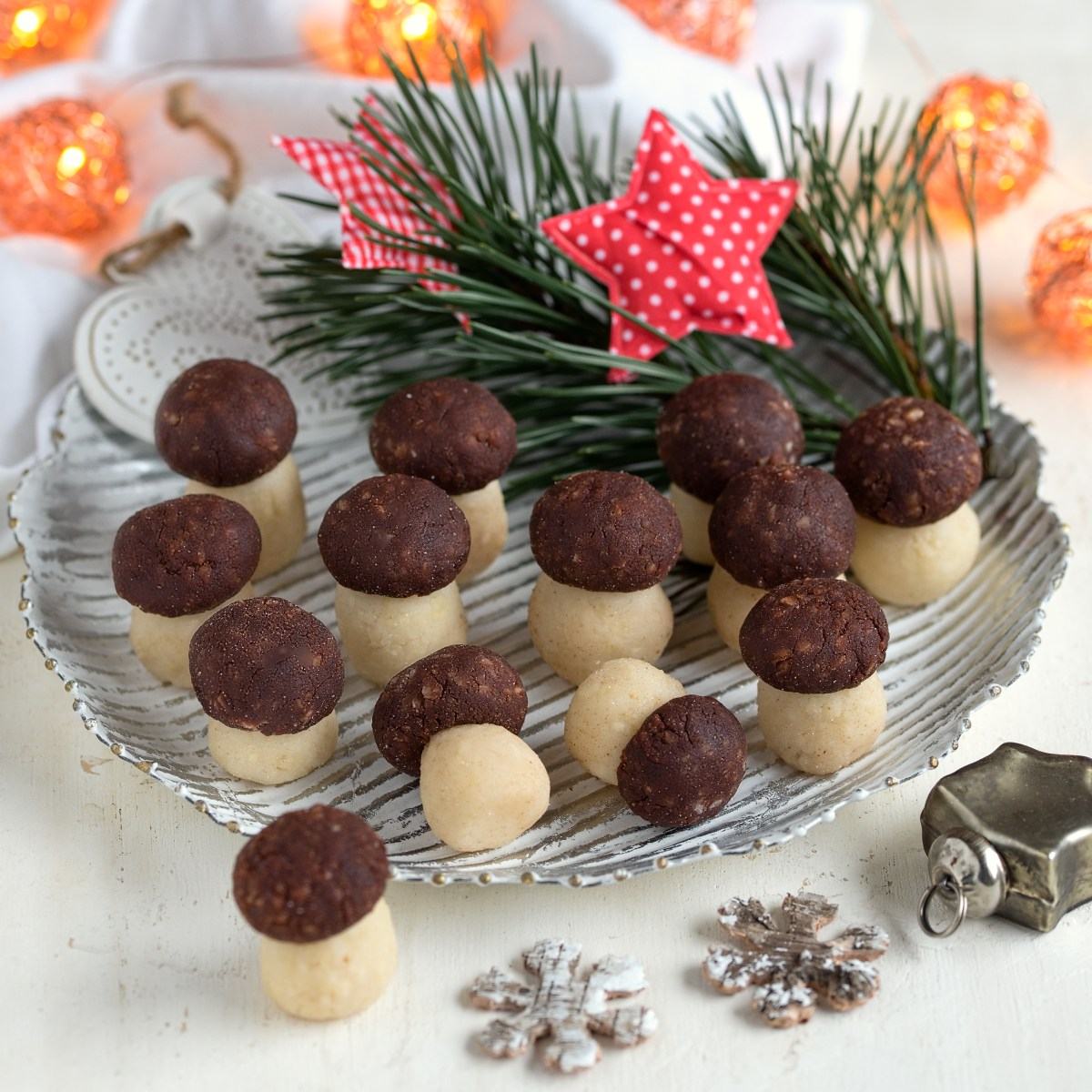
Perrin
You are not specific about what kind of hazelnut to use…roasted, salted, fried or raw?
Petra Kupská
I apologize for the inaccuracy in the recipe. These are raw hazelnuts, which should be soaked in water beforehand to soften them a bit.
Gloria
thank you , I have a friend I will be baking these for, she misses home 🤗
Petra Kupská
Thank you, Gloria! I believe you and your friend will love these cookies 🙂
Cassondra Holschbach
I am going to make these for my Grandpa; as his mother was Czech. I hope they remind him of his childhood. Thank you for this wonderful recipe. 🙂
Anicka Cooklikeczechs.com
Hello Cassondra, thank you for your comment - what a lovely idea! Hope your grandfather will enjoy the Cukrovi! 🙂
Greetings from the Czech Republic.